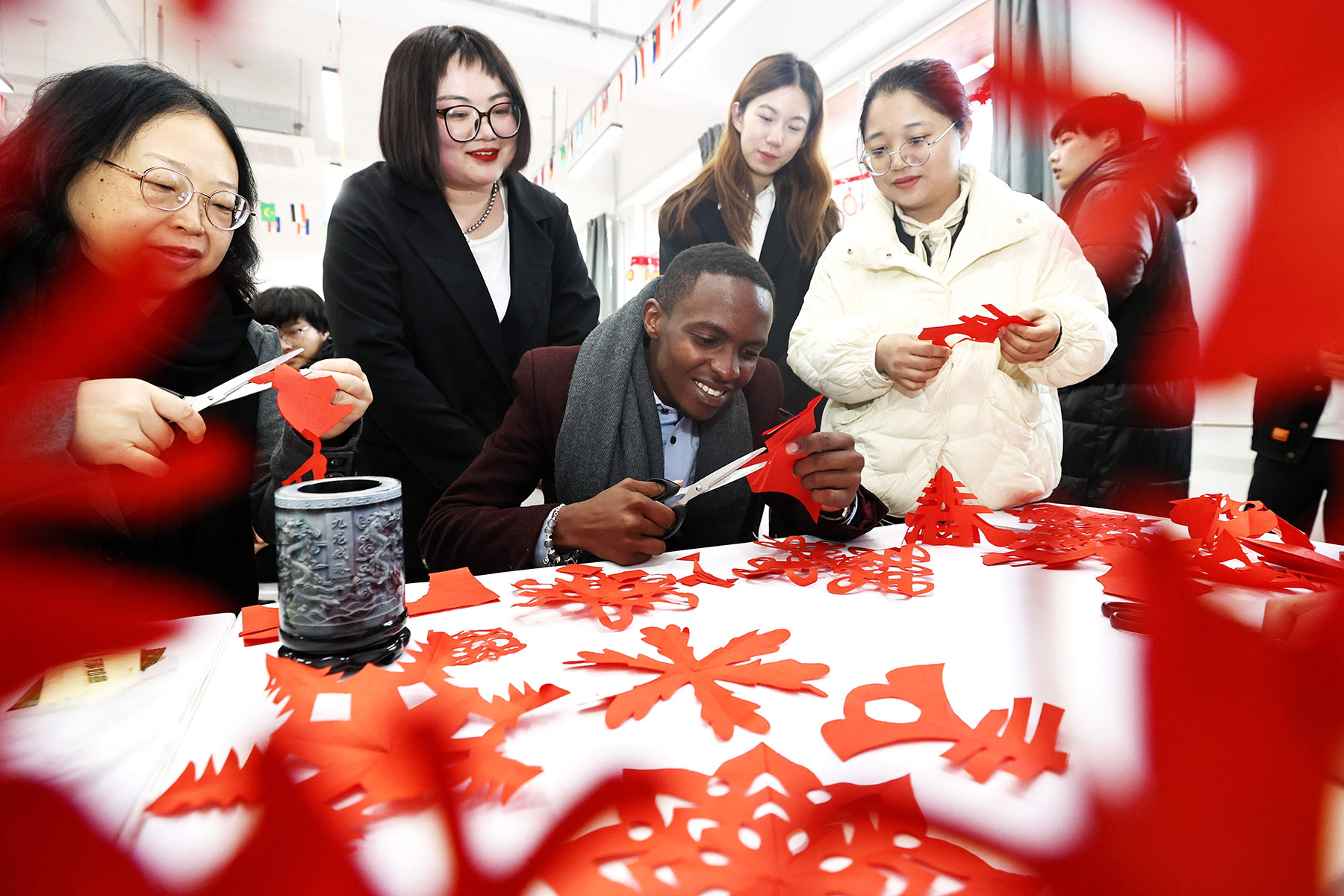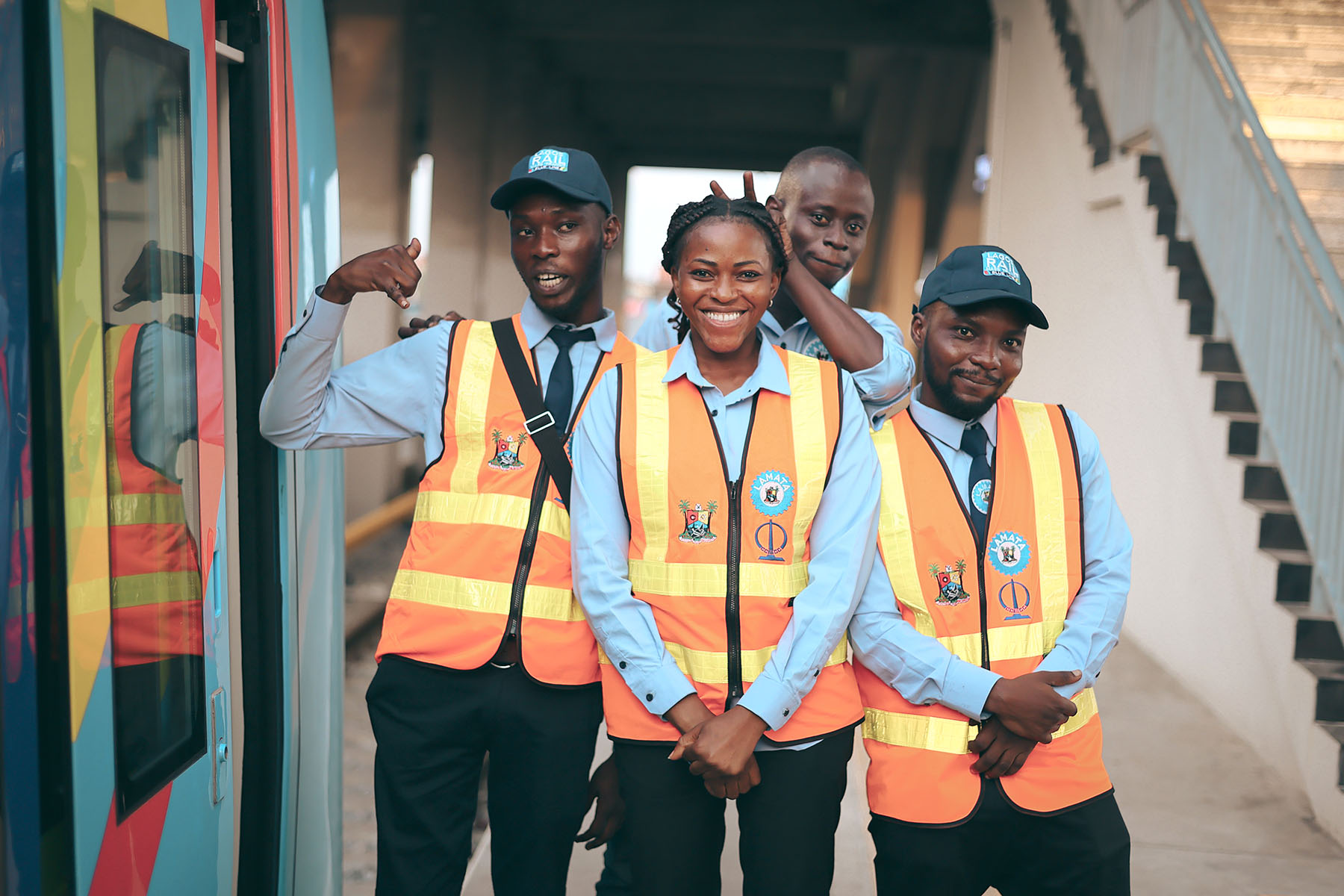Infrastructure and people-to-people exchanges bring more development across continent

Once dotted with dilapidated roads, limited railway lines, inadequate port facilities, isolated and underdeveloped regions due to poor connectivity, and unending power outages coupled with extreme poverty, today Africa boasts smoother roads, standard gauge railway lines, expanded modern ports and airports, as well as a growing economy, largely attributed to intensified Sino-African cooperation over the past two decades through the Forum on China-Africa Cooperation platform.
Established 24 years ago, FOCAC has given life and shape to Africa with the impact trickling down to even the most remote areas of the continent. Over the past two decades, Chinese enterprises have built or upgraded more than 10,000 kilometers of railways in Africa, nearly 100,000 km of roads, nearly 1,000 bridges and 100 ports.
In September 2024, the FOCAC summit held in Beijing, painted a new picture for the joint China-Africa endeavors to achieve modernization for both sides, through intensified cooperation ranging from infrastructure, trade, security to digital economy and advanced technologies such as lunar exploration.
READ MORE: China, Republic of Congo to implement FOCAC outcomes for closer ties
Dennis Munene, the executive director of the China-Africa Centre at the Africa Policy Institute, based in Nairobi, Kenya, said if Africa was still stuck with the old partners and ignored China, the continent would continue to struggle with poor infrastructure and increased poverty rates.
Munene said that Africa's claims that FOCAC and the Belt and Road Initiative have transformed the continent are backed by facts, noting that Africans are able to travel smoothly and enjoy continental integration, thanks to infrastructure development by China.
"I can access Kenya's Jomo Kenyatta International Airport in less than 15 minutes, a journey that used to take almost two hours prior to the construction of an expressway. Today, my countrymen are enjoying safe travel by the standard gauge railway line from Nairobi to Mombasa, cutting the journey's duration by half," he said.
"If we hadn't looked East, there are things we would not have enjoyed as a continent. Today Ethiopians are enjoying a speed rail and Tanzania is in the process of finalizing hers, thanks to the FOCAC platform."
Munene expressed hope that one day, through FOCAC and other initiatives like the BRI, the entire continent will be connected by a standard gauge railway, easing transportation and facilitating intra-African trade.
"If we continue partnering with China, we will witness a lot of transformative projects that will help Africa to enjoy its resources," he said.
After FOCAC was established in 2000, he said Africa received an initiative that was more focused on its issues, such as development, peace, health, and industrial growth.
Munene said FOCAC has given rise to some of China's initiatives, the reason the continent has embraced the BRI quickly and confidently, as well as the Global Development Initiative, the Global Security Initiative and the Global Civilization Initiative.
He said FOCAC has provided African countries with financial support that is flexible, sustainable and has no strings attached, aiding development of its infrastructure.
Unlike other similar platforms, Munene said FOCAC has action plans and a declaration after every summit. "It is not just an agenda or an initiative that is coming from China alone. It's an initiative that integrates what Africa wants," he said.
Mwangi Wachira, a former economist with the World Bank, said that in terms of development, many of the programs announced, presented or discussed at FOCAC, have been "standard setters".
"They have been the flagships of development in the participating countries," he said.
Wachira described the BRI as one of the most important projects for Africa alongside FOCAC, which has seen Africa transform its infrastructure, consequently facilitating trade, investment and integrating the continent into one huge market.
"If FOCAC remains focused on integrating Africa into one market, it will play a historic role in the development of the continent," he said.
Wachira said the unusual degree of honesty, the unusual degree of openness, and the unusual degree of consultations on the details of initially multilateral engagement sets FOCAC apart.
Wachira wishes that China could partner with Africa to have more of the green energy products made on the continent, noting that most of the minerals used to make the products are sourced from Africa.
"There is no reason why Kenya cannot produce vehicles in cooperation with Chinese companies such as BYD, which is already operating in some African countries," he said.
"Green energy is the wave of the future. It is what is going to save the world from self-annihilation from pollutants."

Clean energy
Cavince Adhere, a scholar of international relations with a focus on China-Africa relations, said China is the largest home for green energy technologies, while Africa is home to the largest green energy resources, hence both parties can play a critical role in promoting green industrialization through FOCAC.
According to the African Development Bank, Africa has almost unlimited potential for solar capacity at 11 terawatts; 350 gigawatts of hydropower, out of which only 5-6 percent is being harvested; 110 gigawatts of wind energy, of which only 2 percent is being used; and 15 gigawatts of geothermal energy sources.
Adhere praised China for helping Africa to exploit its green energy potential, noting the Asian country has contributed to over 21 percent of the continent's green energy transition in the last decade.
"When growing up in the rural areas, we used kerosene for lighting. Today, every roof in the rural areas is dotted with a solar panel, most of which are manufactured in China," he said.
According to Ember, an energy think tank headquartered in London, Africa's solar imports from China increased by 187 percent year-on-year in 2023.
Adhere said Africa is also witnessing an increased presence of Chinese electric vehicles which are helping to reduce emissions.
"Chinese EV manufacturers have shown that they can manufacture high-quality cars at affordable rates. So, we look forward to many African markets adopting these Chinese technologies to decarbonize the transport sector," he said.
Isaac Ankrah, a research fellow at the Africa-China Center for Policy and Advisory, said through FOCAC, Africa is not only industrializing but also doing so sustainably, setting the stage for a new era of growth driven by green energy, innovation, and collaboration.
Ankrah said the FOCAC 2024 Action Plan adopted at the summit in Beijing set a comprehensive road map to bolster energy infrastructure and advance the continent's overall industrial growth through a sustainable lens.
A notable feature, he said, is the commitment by China to develop 30 strategic clean energy projects in Africa, with a focus on solar, wind, and hydropower.
"These initiatives intend to drive Africa's industrial shift away from fossil fuel dependency toward renewable energy, allowing it to meet its industrial demands while aligning with global sustainability targets and addressing the climate crisis," Ankrah said in a statement published by the Africa-China Center for Policy and Advisory on its website.

Role of youth
With FOCAC serving as a major platform for cooperation, Paul Frimpong, the executive director and senior research fellow at the Africa-China Centre for Policy and Advisory, suggests that it is time for young Africans to play a more central role in shaping the policies and projects that will define their future.
With more than 60 percent of the population under the age of 25, Africa boasts the world's youngest population, with youthful energy and untapped potential.
Frimpong said engaging young leaders in FOCAC discussions will help break down stereotypes, build diplomatic bridges, and foster a sense of shared purpose, ensuring the partnership remains strong and mutually beneficial in the future.
"By including youth in shaping FOCAC policies, the forum can ensure its strategies are aligned with the interests and priorities of the vibrant population, creating a more inclusive and forward-looking partnership," he said.
ALSO READ: Chinese foreign minister vows to enhance cooperation with Africa
Similar sentiments were shared by Adhere who said the future of Africa-China relations will be shaped by the youth. They have a responsibility to shape how they want to engage with China by informing their respective governments about their priority areas, he said.
"Today, young Africans prefer to study in China, where they believe the quality of education is quite high just like in Western countries and the cost of living is quite low compared to Western countries. So it's easier for them to learn from the Chinese experience and transpose those ideas into their own countries," he said.
On the Western criticism of Chinese investments in Africa, Wachira is of the view that Africa should ignore them and concentrate on enriching its relationship with China.
Noting that there will always be criticism, Wachira urged China and Africa to ignore criticism and strengthen cooperation between the two sides.
edithmutethya@chinadaily.com.cn


